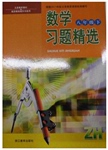题目内容
【题目】Even if you don’t have to work, eat or sleep, you won’t be able to get through all infermation on blogs and social networks. The problem we face is that much of this information seems very interesting at first glance. Actually, much of the information is unimportant, disposable and it distracts(分心)us from more meaningful pursuits. Worse still, when we spend lots of time consuming information from our social media streams, we may find it hard to concentrate on what we’re doing and we have a tendency to forget what we have consumed anyway.
A new study from Sweden’s KTH Royal Institute of Technology has found that too much social media exposure actually reduces your ability to process information and depletes your short-term working memory.
Our working memory plays a critical role in our capacity to filter information and remember what is valuable but it is not a limitless resource. Erik Fransén, a professor in Computer Science at KTH and the leader of this new study on social media overload says this can explain why our capacity for processing information begins to fail when we attempt to stuff more information in the working memory.
In fact, when you try to process the information like speech or video, you are going to need partly the same system of working memory, so you are reducing your own working memory capacity. And when you try to store many things in your working in your working memory, you get less good at processing information.
It is the periods of downtime of your brain—preferably disconnected from the distractions of your computer or smartphone—that are needed for memory consolidation and transferring important information to your exposure to new information. Besides, you can empty your mind of thoughts quickly to relax completely, go for a short walk or spend s few minutes listening to music. This will help you improve your capacity to process information and increase your productivity.
【1】What can we learn abut social media overload from Paragraph 1?
A. It distracts our atention.
B. It is beneficial to us.
C. It brings us whatever we want.
D. It keeps us informed of everything.
【2】Why does your capacity for processing information begin fall sometimes?
A. Much of the information is unimportant.
B. You don’t make the most of your brain.
C. You’re less good at processing information.
D. Your working memory is a limited source.
【3】What does the underline word “downtime” in the last paragraph probably mean?
A. Support.
B. Relaxation.
C. Increase.
D. Loss.
【4】Which is recommended to relax your brain?
A. Listening to music for a while.
B. Thinking over things carefully.
C. Taking enough physical exercise.
D. Focusing more on the present.
【答案】
【1】A
【2】D
【3】B
【4】A
【解析】本文讲述了社交媒体会给我们提供很多的信息,这些信息大部分没有用处,甚至会扰乱我们的注意力。同时我们的工作记忆也不是无限的,需要我们整合信息,清空思绪,以便更好地提高处理信息和提高生产率的能力。
【1】A推理判断题。根据文章第一段Actually, much of the information is unimportant, disposable and it distracts(分心)us from more meaningful pursuits.大部分信息是不重要的,一次性的,它分散 我们更有意义的追求,可知社交媒体分散了我们的精力,故选A。
【2】D推理判断题。根据文章第三段Our working memory plays a critical role in our capacity to filter information and remember what is valuable but it is not a limitless resource. Erik Fransén, a professor in Computer Science at KTH and the leader of this new study on social media overload says this can explain why our capacity for processing information begins to fail when we attempt to stuff more information in the working memory.我们的工作记忆在过滤信息的能力中起着至关重要的作用,但是它并不是一个无限的资源。可知有时我们处理信息的能力降低是因为我们的记忆被限制,故选D。
【3】B词义猜测题。根据后边Besides, you can empty your mind of thoughts quickly to relax completely, go for a short walk or spend s few minutes listening to music.清空思绪,完全放松自己,downtime是放松relaxation,故选B。
【4】A细节理解题。根据文章Besides, you can empty your mind of thoughts quickly to relax completely, go for a short walk or spend s few minutes listening to music. This will help you improve your capacity to process information and increase your productivity.此外,你可以很快清空你的思绪,完全放松,走一小段路,或者花几分钟时间听音乐,这将帮助你提高处理信息和提供生产率的能力。故选A。

 习题精选系列答案
习题精选系列答案